Investigating the Future of Work, Workplace, and Corporate Real Estate
(Y)OUR SPACE is Knight Frank | Cresa’s flagship thought leadership research bringing you data-led insights about the future direction of travel in corporate real estate. Our findings help you better understand and manage the growing complexity of work, workplace, real estate portfolios and underlying business strategy
The survey includes 640 corporate real estate professionals from around the globe. The increasing complexity of the business environment and the critical role of real estate has come under focus as workstyles are undergoing a generational shift due to the global pandemic.
The following summary highlights the trends we’re seeing in corporate real estate. Global disruptions and change are not uncommon, but preparing for those changes and understanding others in the CRE space helps frame the issues and provides perspectives for complexities in our own organizations.
Corporate Real Estate in the Crosshairs of Complexity
There’s no question that the operating environment for business is more challenging. The role of corporate real estate has taken the front seat, as work styles have undergone unprecedented disruptions not witnessed in the past 50 years, primarily due to the impact of the global pandemic.
In the (Y)OUR SPACE survey, we asked respondents to assess the perceived future complexity across various categories. One particular response that stood out, was that 47.6 percent of respondents believe that real estate decision-making has increased.
Driving Change: Future Portfolio Dynamics
The future state of real estate portfolios depends largely on the company’s growth stage. Among the survey participants, almost half of the largest companies with over 50,000 employees expect a reduction in total portfolio growth. However, one-third anticipate portfolio growth. Conversely, smaller companies anticipate an increase in portfolio size.
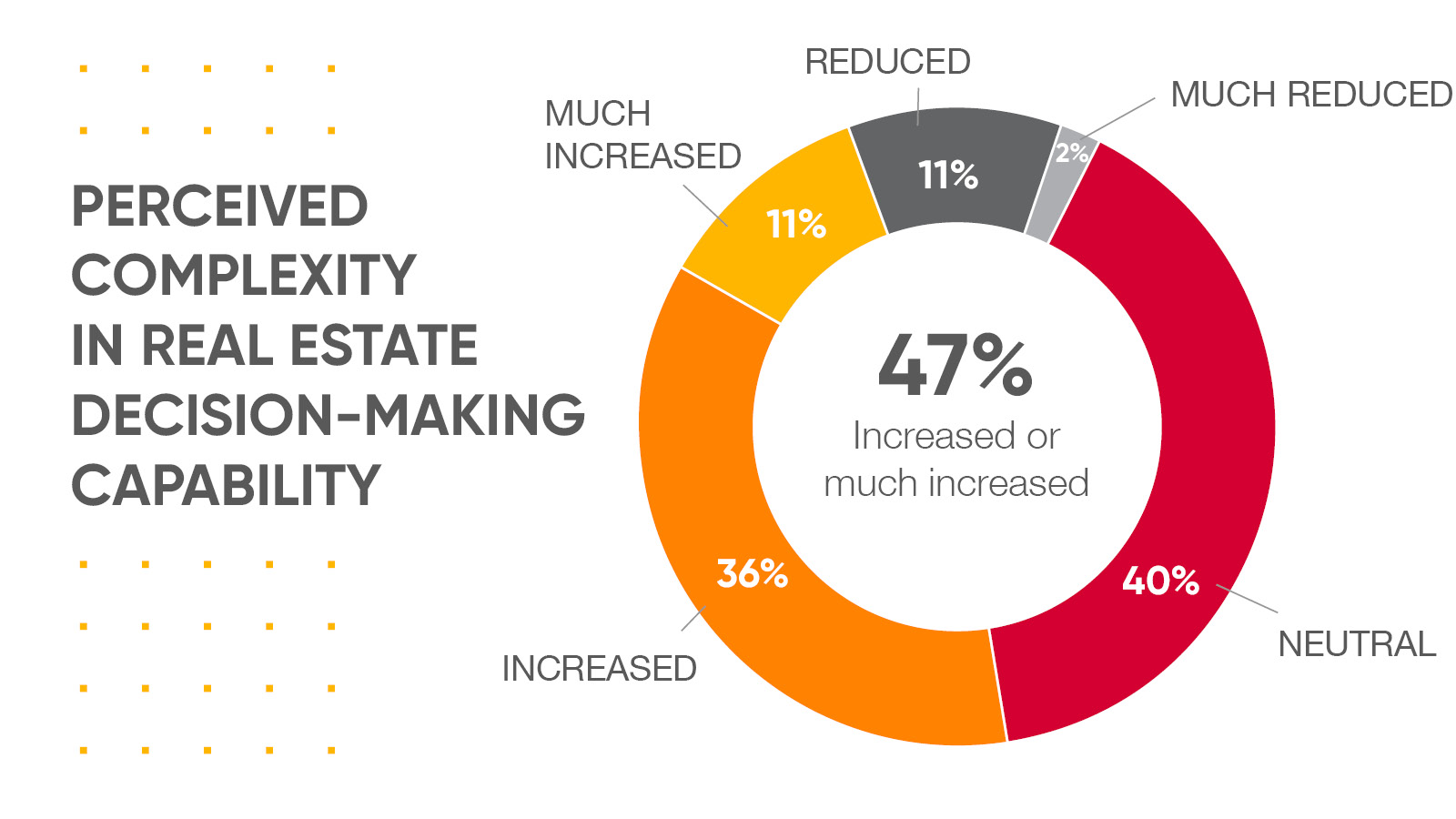
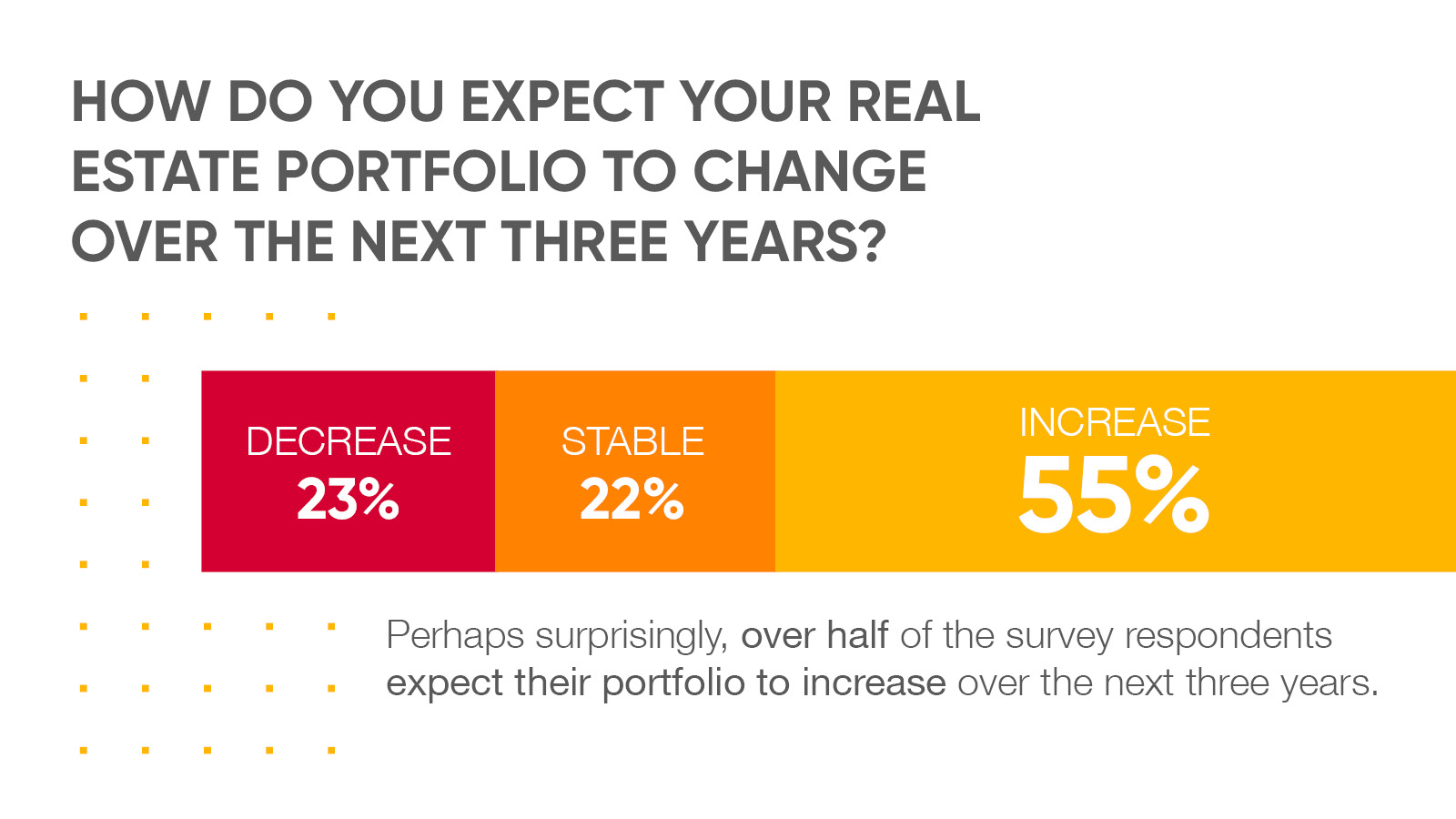
As businesses seek to optimize costs and align their real estate portfolios, many are subject to relocation pressures for their core and headquarters facilities.

The reasons for relocating these facilities vary, but the primary driver is cost savings, closely followed by the need to adapt to changing workstyles.
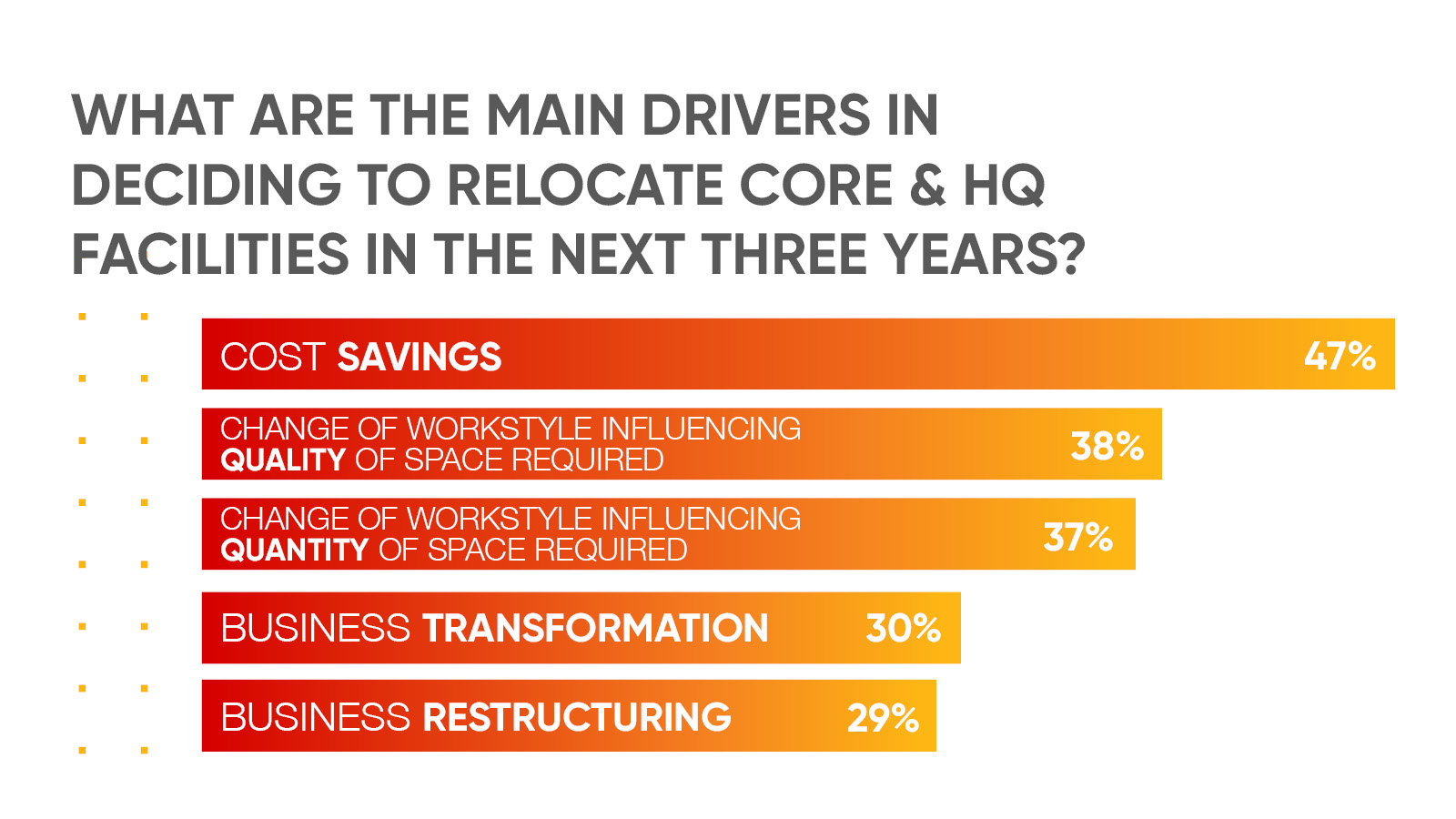
In today's rapidly evolving business landscape, the integration of ESG considerations into portfolio planning is no longer a choice but a strategic imperative. As regulations tighten and stakeholders demand greater transparency, embracing ESG becomes not only a smart business move but an essential one. This is echoed by the fact that 72% of respondents anticipate that ESG will moderately or greatly influence business decisions.
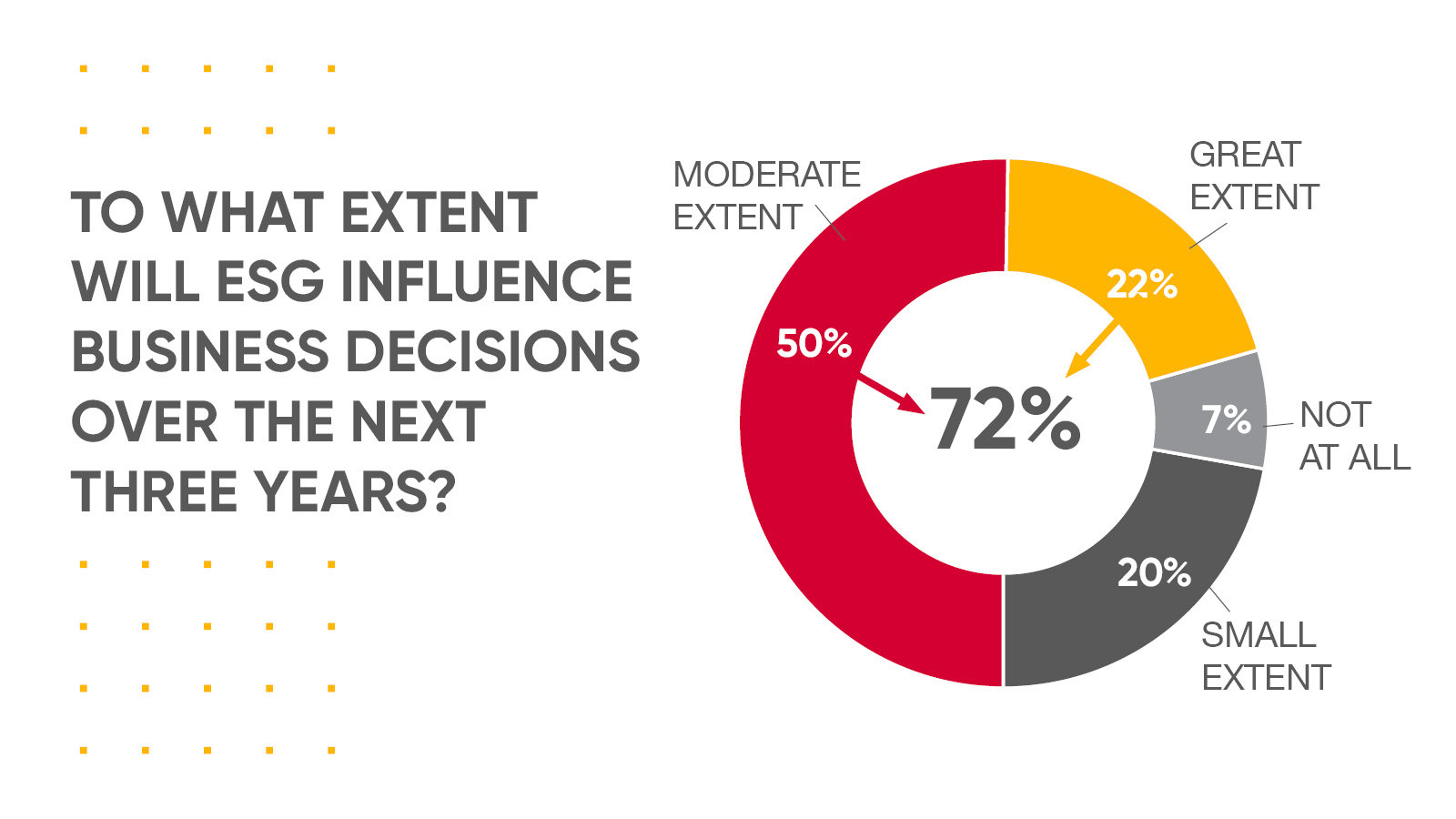
"There is no doubt that working in the office and collaborating face-to-face offer tangible benefits, but it is equally true that people value the freedom to make their own decisions regarding where and when they work. Perhaps more crucial than changing work policies is the culture that companies cultivate and their ability to lead successful organizations through support and consistent messaging, whether in the office, remote, hybrid, or a combination of these." - Craig Van Pelt, Head of Research.
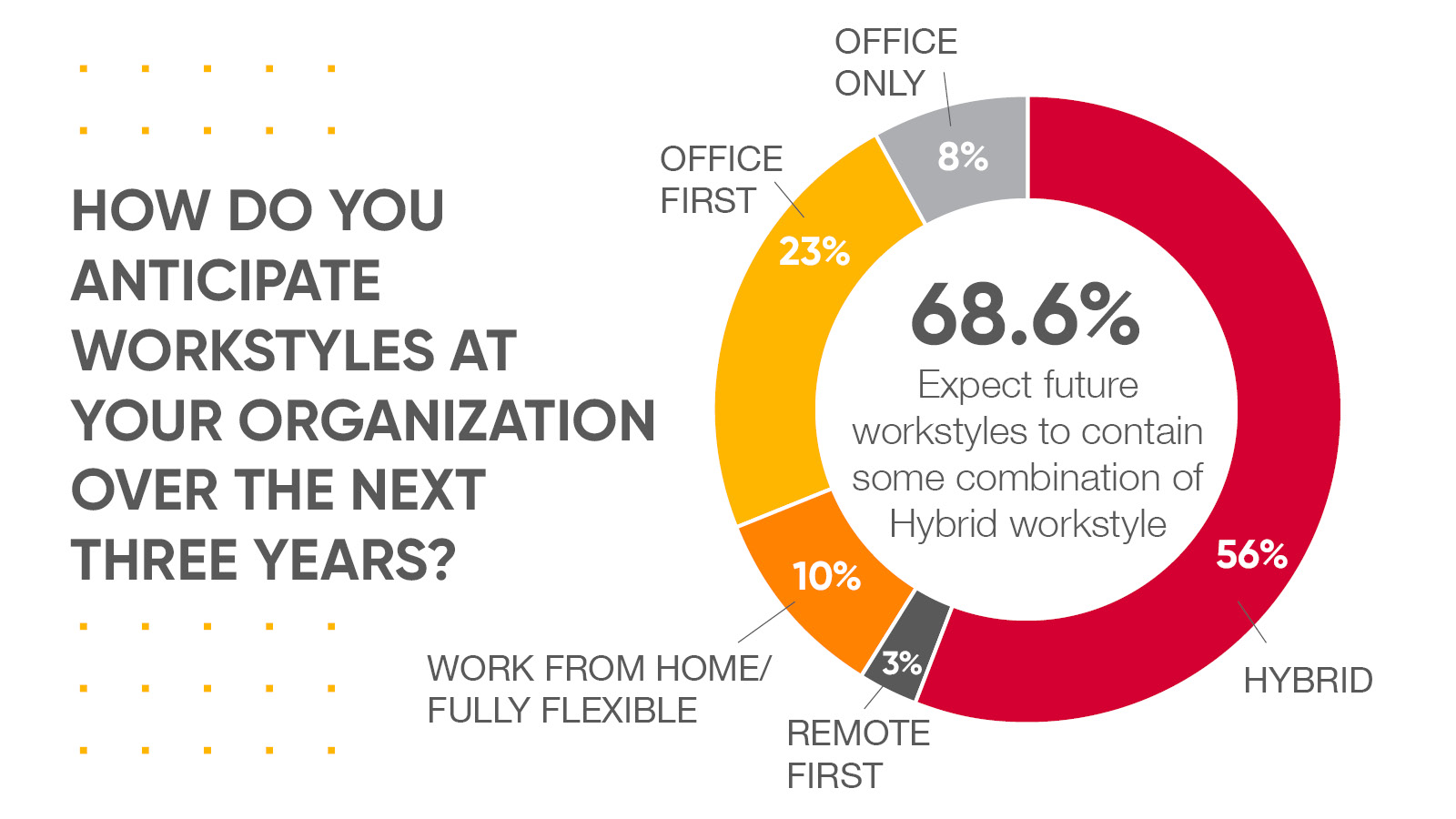
Attracting and retaining talent will always remain a top priority for any organization. The recent flight-to-quality among many companies is an effort to entice employees back to the office. Meeting employees' desires for appropriate amenities can drive this shift.
The relationship between quality and amenities remains strong, with 45 percent of respondents expecting an increase in amenity provision in and around their workplaces.
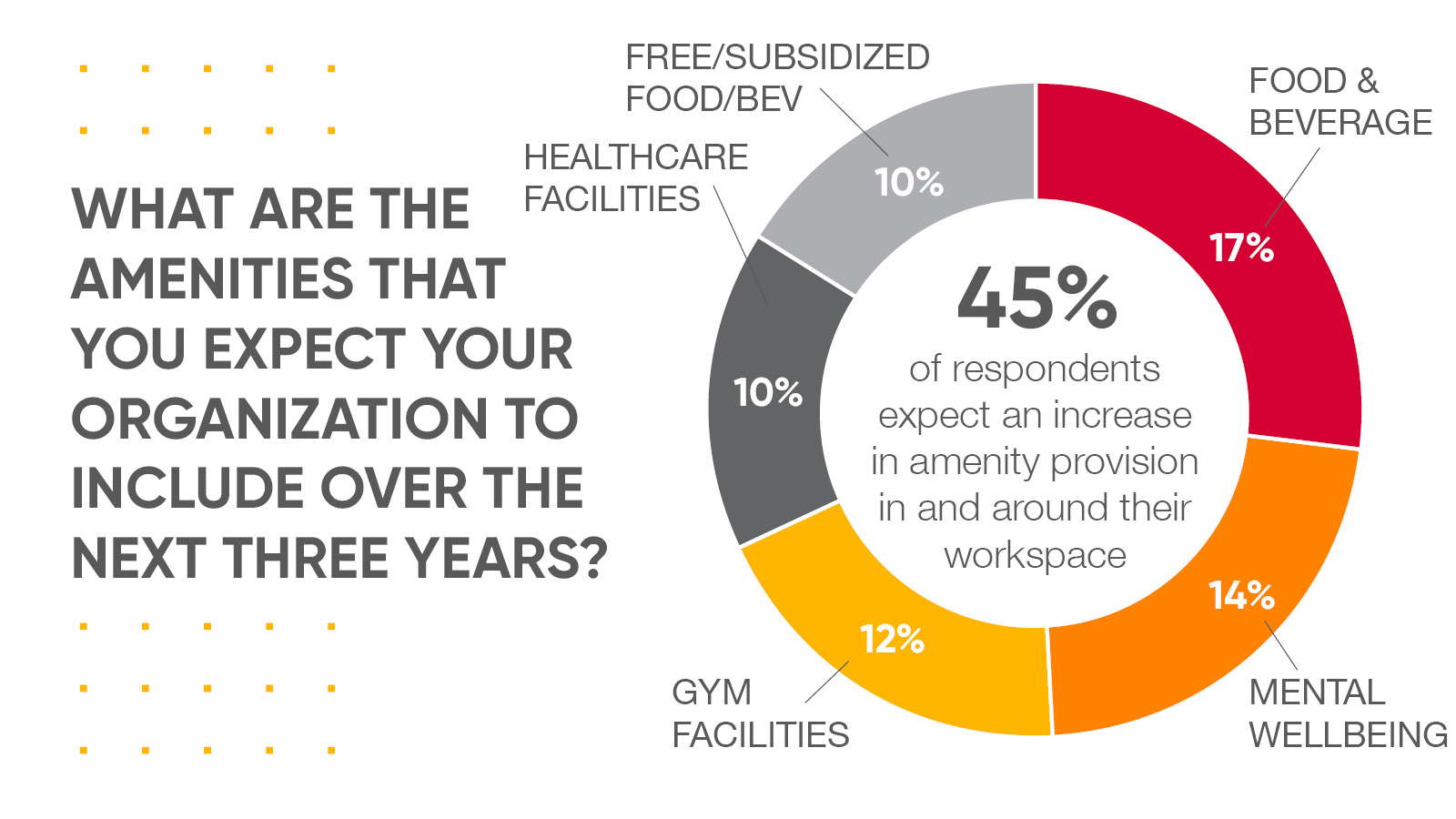
Regardless of whether organizations are expanding or downsizing their office space, they are increasingly opting for higher-quality spaces and undergoing significant transformation. This surge in demand is fueling the need for more sustainable office spaces worldwide.
Conclusion
There is no one-size-fits-all approach to adapting to a post-Covid world. The culture cultivated within individual organizations will ultimately shape business decisions. Complexity is inherent in how and where we conduct work, engage with clients, and collaborate with our teams. Thoughtful and deliberate decision-making is likely to yield greater success, as complexities will persist. Adapting and learning from both successes and failures in the past will inform future strategies.


